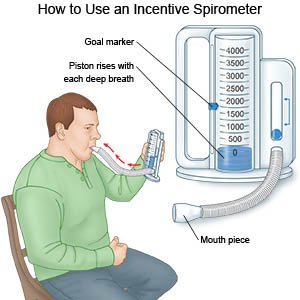Sickle Cell Crisis
Medically reviewed by Drugs.com. Last updated on Apr 6, 2025.
A sickle cell crisis is a painful episode that occurs in people who have sickle cell anemia. It happens when sickle-shaped red blood cells (RBCs) block blood vessels. Blood and oxygen cannot get to tissues, causing pain. A sickle cell crisis can also damage your tissues and cause organ failure, such liver or kidney failure. A sickle cell crisis can become life-threatening.
WHILE YOU ARE HERE:
Informed consent
is a legal document that explains the tests, treatments, or procedures that you may need. Informed consent means you understand what will be done and can make decisions about what you want. You give your permission when you sign the consent form. You can have someone sign this form for you if you are not able to sign it. You have the right to understand your medical care in words you know. Before you sign the consent form, understand the risks and benefits of what will be done. Make sure all your questions are answered.
Intake and output:
Healthcare providers may measure how much liquid you drink. They may also measure how much you urinate.
A pulse oximeter
is a device that measures the amount of oxygen in your blood. A cord with a clip or sticky strip is placed on your finger, ear, or toe. The other end of the cord is hooked to a machine.
You may need extra oxygen
if your blood oxygen level is lower than it should be. You may get oxygen through a mask placed over your nose and mouth or through small tubes placed in your nostrils. Ask your healthcare provider before you take off the mask or oxygen tubing.
Drugs used to treat this and similar conditions
Ozempic
Learn about Ozempic (semaglutide) for type 2 diabetes treatment, weight management, cardiovascular ...
Adakveo
Adakveo (crizanlizumab-tmca) is used for the prevention of vasoocclusive crises (VOCs) in patients ...
Xromi
Xromi (hydroxyurea) is an oral solution that may be used to reduce the frequency of painful crises ...
Glutamine
Glutamine systemic is used for dietary supplementation, short bowel syndrome, sickle cell anemia
Vitamin e
Vitamin E is an antioxidant that occurs naturally in some foods and is used to treat or prevent ...
Hydroxyurea
Hydroxyurea systemic is used for cervical cancer, chronic myelogenous leukemia, glioblastoma ...
Incentive spirometry:
You may be taught to use an incentive spirometer to help you take deep breaths. Put the plastic piece into your mouth and slowly take a breath as deep and as long as you can. Hold your breath as long as you can. Then let out your breath. Do this as often as directed.
 |
Medicines:
- Pain medicine may be given. Do not wait until your pain is severe to ask for more medicine.
- Antidepressants improve mood and may help decrease pain.
- Antibiotics treat or prevent a bacterial infection.
- Hydroxyurea helps your body make red blood cells that are less likely to sickle. This may help decrease your pain.
Tests:
- Blood tests are done to look at your RBCs. They also show liver and kidney function and give information about your overall health.
- An x-ray, ultrasound, or MRI may show if sickle cell anemia has affected organs, such as your liver or kidney. You may be given contrast liquid to help the organs show up better in the pictures. Tell the healthcare provider if you have ever had an allergic reaction to contrast liquid. Do not enter the MRI room with anything metal. Metal can cause serious injury. Tell the healthcare provider if you have any metal in or on your body.
Treatment:
- IV fluids treat dehydration and help reduce sickling of RBCs.
- A blood transfusion replaces blood with RBCs that are not sickle shaped.
- Surgery may be done to remove part of your spleen.
- Occupational and physical therapy may help improve movement and strength and decrease pain. An occupational therapist teaches you skills to help with your daily activities.
Treatment options
The following list of medications are related to or used in the treatment of this condition.
RISKS:
A sickle cell crisis may cause severe pain. A sickle cell crisis may harm organs, such as your kidneys or spleen. It may also lead to liver or kidney failure. A sickle cell crisis may cause trouble breathing or lung problems. A sickle cell crisis increases your risk for a heart attack or stroke. These conditions may become life-threatening.
CARE AGREEMENT:
You have the right to help plan your care. Learn about your health condition and how it may be treated. Discuss treatment options with your healthcare providers to decide what care you want to receive. You always have the right to refuse treatment.© Copyright Merative 2025 Information is for End User's use only and may not be sold, redistributed or otherwise used for commercial purposes.
The above information is an educational aid only. It is not intended as medical advice for individual conditions or treatments. Talk to your doctor, nurse or pharmacist before following any medical regimen to see if it is safe and effective for you.
Learn more about Sickle Cell Crisis
Treatment options
Care guides
Symptoms and treatments
Further information
Always consult your healthcare provider to ensure the information displayed on this page applies to your personal circumstances.
